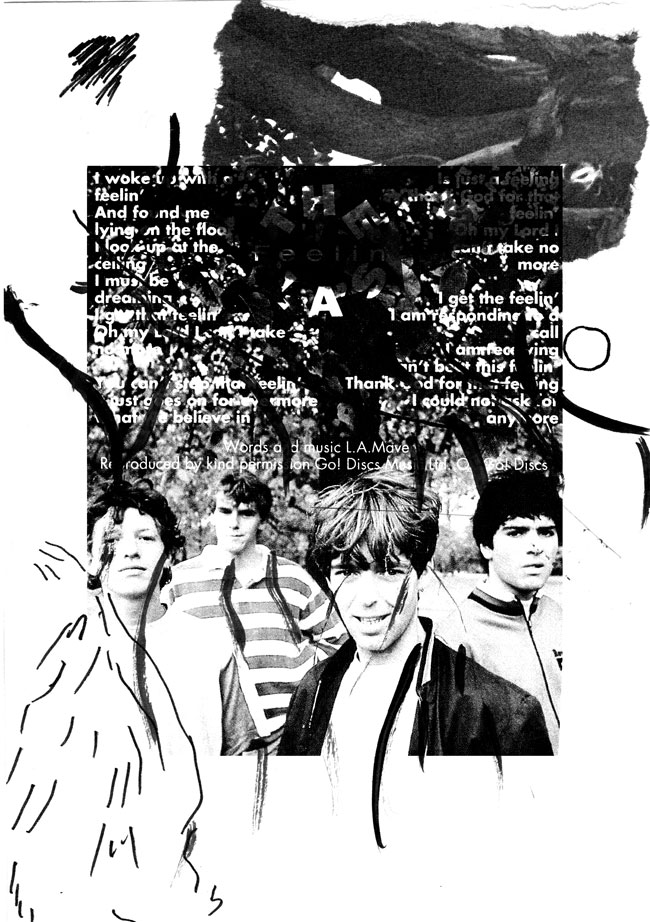|
Sunday, with the television off.
I think of the future. My death bed. I imagine the man I will be. Then I pay that man a visit. Ask him, what would you do?
So I leave the car and walk across town. Knock on my father’s door to say hello and listen to his stories, the ones I’ve heard before.
It’s like I’ve travelled in time. Now he knows that someone is listening. On the way home, the sun falls behind the buildings, and I walk into a supermarket.
Working away
Mornings are familiar. The heft of a still-saw. The weight of a drill. The texture
of rust. When to say yes, when to say lift it yourself. But the evening are foreign.
The café in the piazza catches the sun at six. The waiter is openly bored. Workmen
drink wine, talk quietly, leave dust on the seats. Only the flies are busy. Yesterday,
the grocer gave me tomatoes for free. Most of them were half rotten.
So she used her thumb to show me where to cut.
Domingo, con la televisión apagada.
Pienso en el futuro. Mi lecho de muerte. Imagino el hombre que seré. Luego visito a ese hombre. Le pregunto, ¿tú qué harías?
Entonces dejo el coche y atravieso la ciudad a pie. Toco en la puerta de mi padre para decir hola y escuchar sus historias, las que ya he oído antes.
Es como si hubiera viajado en el tiempo. Ahora sabe que alguien escucha. En el camino a casa, el sol cae tras los edificios, y entro a un supermercado.
Trabajar fuera
Las mañanas son conocidas. El peso de una sierra still. El peso de un taladro. La textura
del óxido. Cuándo decir sí, cuándo levantarlo tú mismo. Pero las noches son extranjeras.
El café en la piazza refleja el sol a las seis. El mesero manifiesta sin reserva su aburrimiento.
Los trabajadores
beben vino, hablan en voz baja, dejan polvo en los asientos. Sólo las moscas están ocupadas.
Ayer,
la verdulera me dio unos tomates gratis. La mayoría estaban medio podridos.
Así que con el pulgar me enseñó dónde cortar.
They speak of the gods
He says Hades, and I see Richard, wearing his wedding mask
kneeling beside a stripped out Citroen, sparks from his torch
lighting one side of the garage wall. She says Zeus, and I see
Casey, framed against the sky, bloated and happy
carrying cement across a tiled roof.
 It’s aboot the labour It’s aboot the labour
hammers nails
hammers nails
hammers nails
heh Casey did a tell ye a goat
a couple a poems published
widizthatmean
widizthatmean
dizthatmeanyegetmoneyfurrit
eh naw
aw right
hammers nails
hammers nails
hammers nails
Ellos hablan de los dioses
Él dice Hades, y yo veo a Richard, con su máscara para soldar
de rodillas junto a un Citroen destripado, chispas de su linterna
alumbrando un lado de la pared del taller. Ella dice Zeus, y yo veo
a Casey, enmarcado contra el cielo, hinchado y feliz
cargando cemento por un tejado.
Se trata de la obra
martillos clavos
martillos clavos
martillos clavos
ey Casey ¿te conté que me
publicaron unos poemas?
esoquésignifica
esoquésignifica
¿esosignificaquetevanadarunalana?
eh no
ah ta bien
martillos clavos
martillos clavos
martillos clavos
Worker
sweat the felt screed the cement
pack the joist level the cleat
eat the piece hammer the nail
string-line the future
raise the bones
build the skeletons
whistle the windows
into our rooms
hoist your brushes
sweep the sky
Trabajador
suda el fieltro maestra el cemento
enrasa la viga nivela la brida
come el lonche martillea el clavo
hila el futuro
levanta los huesos
construye los esqueletos
silba las ventanas
hasta nuestros cuartos
iza tus cepillos
barre el cielo
By the time we met
Candelight was kind to her. Her fork seemed
weightless, but seldom made the journey upwards.
I suspect that she had tasted asparagus before.
Conversations clashed around her and dispersed
like circles on the surface of a lake.
After the Shiraz, I had courage, and I said. You
must have been something when you were younger.
Quiet, so none could overhear, she touched
my arm and replied. ‘We stumble into youth
by accident, from somewhere else, and spend
the rest of our lives making our way home.’
Para cuando nos conocimos
La luz de vela era amable con ella. Su tenedor parecía
no tener peso, pero rara vez hacía el viaje hacia arriba.
Sospeché que ya había comido espárragos antes.
Las conversaciones chocaban a su alrededor y se dispersaban
como círculos en la superficie de un lago.
Después del Shiraz, tuve el valor, y dije. Debes
haber sido algo cuando eras más joven.
En silencio, para que nadie escuchara, tocó
mi brazo y respondió. “Caemos en la juventud
por accidente, desde otra parte, y pasamos
el resto de nuestras vidas camino a casa”.
|
